Engine coolants prevent our cars from overheating. They also help lubricate the water pump, head gasket, cylinder, and piston timing. Coolant is an integral fluid that acts as both regulator of engine temperature and lubricant. Since it is best known as a temperature regulator, have you ever wondered if the coolant level drops when the engine is hot? In this article, we have researched the exact question and found the answer for you.
The coolant level does not drop when hot, it rises. Due to its properties, car coolant expands when heated and retracts when cooled. Its primary function is to absorb the excess heat that the engine produces to prevent your motor from overheating. It can also act as antifreeze, protecting your engine during extremely cold temperatures.
Interested in learning more about car coolants? Finish reading until the end to know more details about car coolants, like when you should change them, coolant maintenance, and many more.
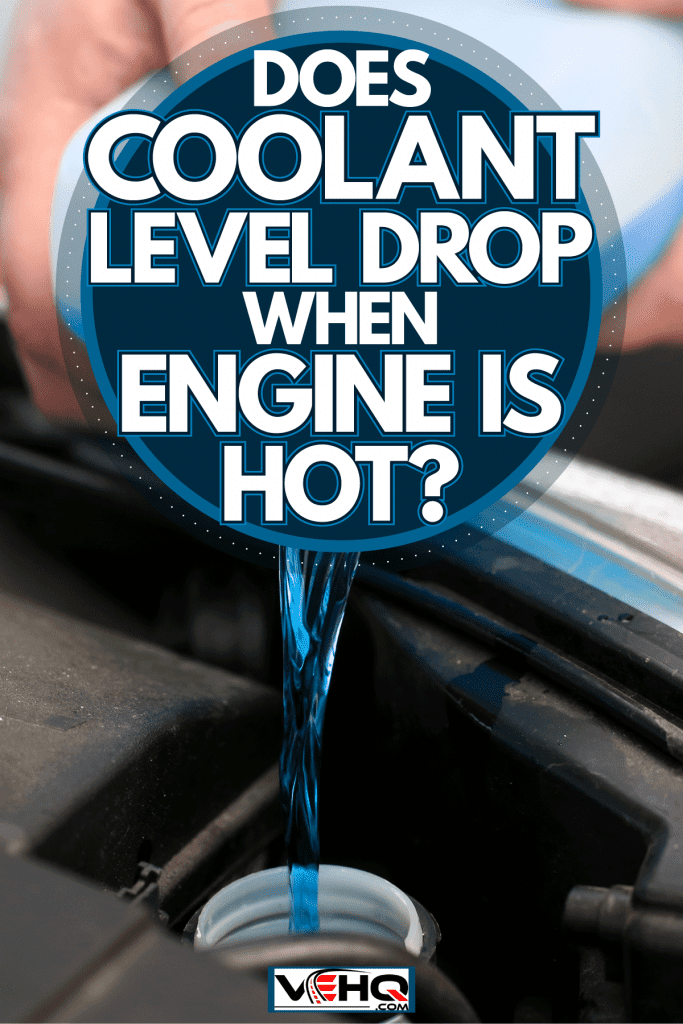
Does coolant evaporate when hot?
Car coolant is a mixture of antifreeze (glycol) and water, yet only the water evaporates and not the antifreeze. However, since it is stored in a tightly sealed radiator, your coolant level does not drop while sealed. If there are leaks in your radiator, the water from the coolant can evaporate because the sealed container is broken.
As time goes by, some natural evaporation of the entire coolant is normal. The continued cycling of coolant flowing through various engine parts can cause the coolant to lose some of its properties. This is expected wear. And as engines age, it is also normal for them to lose coolant faster than before.
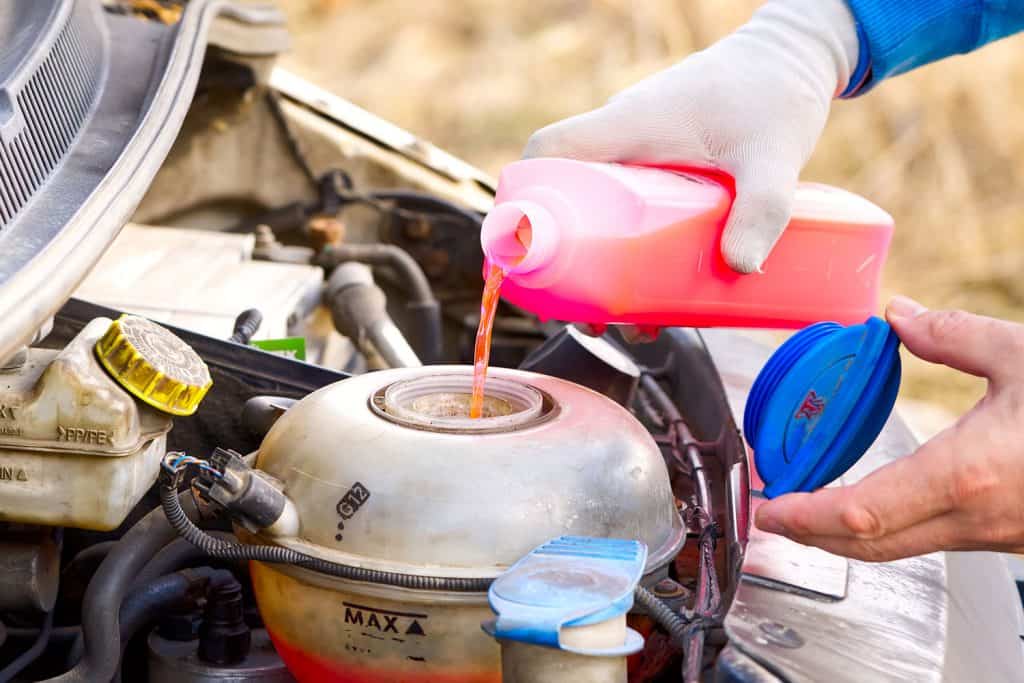
An estimated 0.25" of coolant level is lost quarterly in a well-functioning engine, accounting for an inch of coolant levels dropped in a year. That's why experts advise that every two years or after 30,000 miles (whichever comes first) to maintain your radiator by cleaning it and replacing the coolant to help extend the life of your engine.
Monitoring coolant levels is preventive maintenance that you should be doing. Overheating is one of the most common issues of old engines, so to avoid overheating in the future, check and replenish your coolant as needed.
We have written a more expanded guide on how to check your coolant level. In the article, we teach you how to properly check if the coolant in your radiator is adequate or not.
Does coolant expire [how often should you top up]?
Coolant is also referred to as antifreeze, and an unopened bottle has an indefinite shelf life. Meaning that if stored properly, your coolant can last years and years. Even if it is already opened, as long as it is sealed tightly and stored correctly, it will last.
Antifreeze not mixed with water also lasts longer compared to pre-mixed coolant, so if you are looking to buy extra coolant in case of emergency, we suggest that you buy non-pre-mixed ones, but even pre-mixed ones still last long.
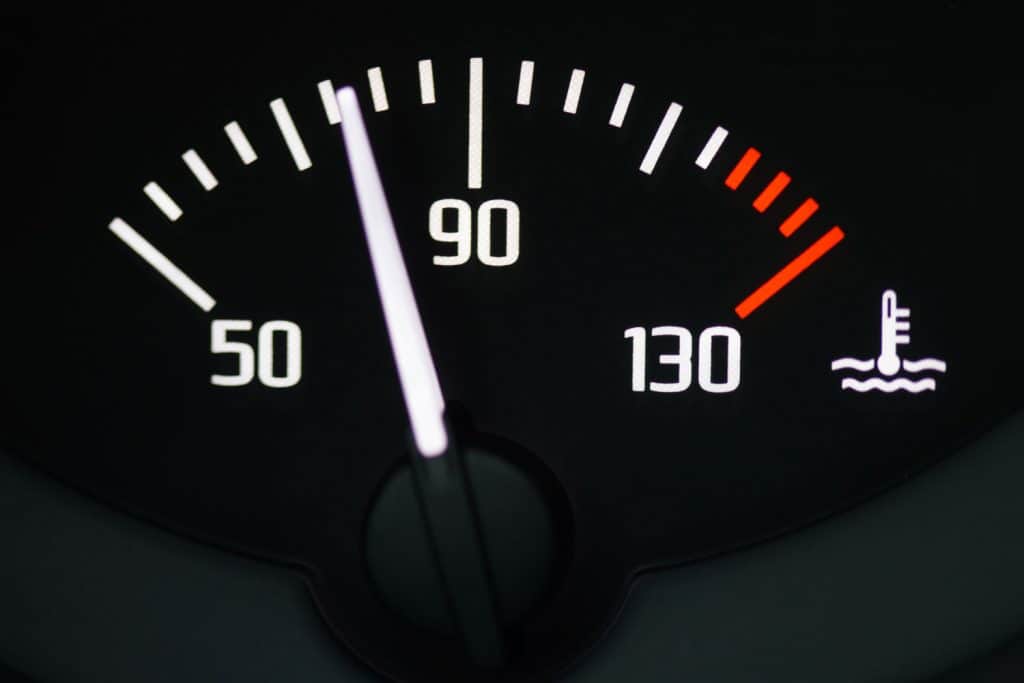
Deterioration of antifreeze only starts when it is already used. Regularly checking on your coolant especially during the winter can help you determine if the antifreeze to water ratio is already imbalanced. A slushy look on your coolant means that water has overpowered the amount of antifreeze in your engine, replace this immediately.
This can cause corrosion in your engine because degenerated coolant lacks the necessary properties for it to function properly and can speed up the decline of your motor.
Coolant disposal
We highly suggest that you do not dump used coolant to the ground or sewer as this may cause environmental problems such as pollution. Degenerated coolants can be sipped by the ground and can pollute your soil. We recommend storing it in a container and dropping it off in a recycling center where it will be properly disposed of.
Antifreeze is also harmful to us humans when breathed in, so always remember when disposing of this chemical wear a mask and gloves to avoid having any contact with it as it is very poisonous even in small amounts.
We have discussed whether coolant is flammable or not and some safety tips in handling it in a previous article titled, Is Engine Coolant Flammable? [Including Safe Handling Tips]. Check it out to learn more.
Can I use water instead of coolant?
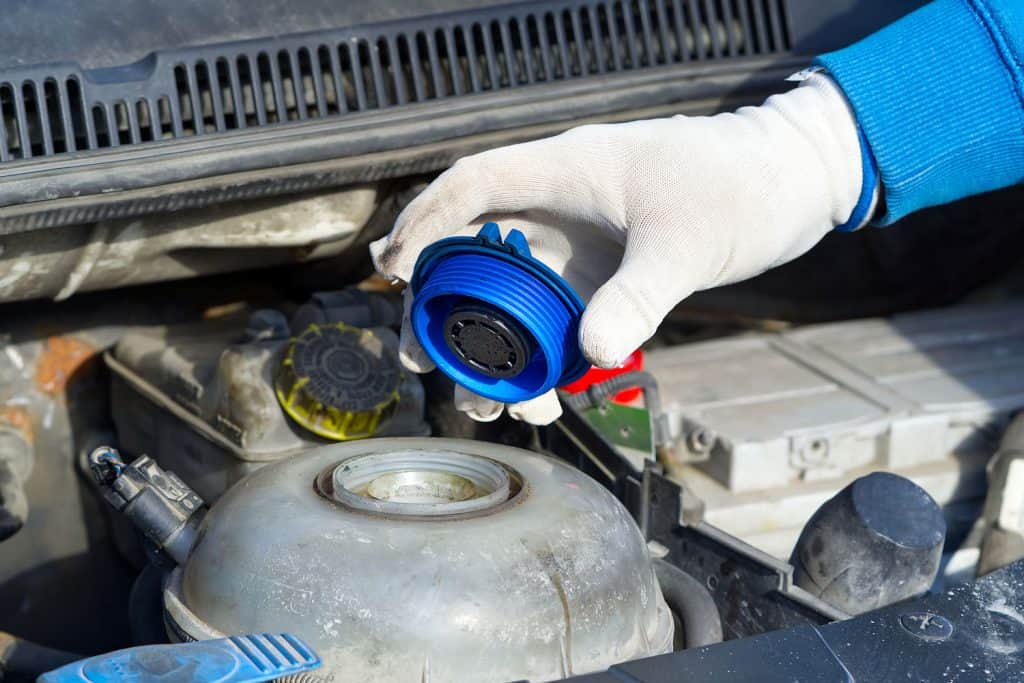
In emergency cases yes, you can use water as a temporary fix if you've run out of proper coolant. But you must put antifreeze in your radiator as soon as possible as water alone is not enough to avoid your engine from overheating or from freezing, both of which can cause serious implications and unrepairable damage to your car.
Water alone is not enough because of its relatively slow resistance against temperature. As we mentioned earlier, the coolant's job fails to be matched by water as it boils only at 212 degrees Fahrenheit and freezes at around 36 degrees Fahrenheit. Temperatures experienced in the engine can exceed than those, thus water as your long-term coolant will not work.
A proper dedicated coolant can stay in liquid form even through extreme temperatures and can circulate through different parts of the engine helping it run smoothly resulting in less stress and wear.
Additionally, manufacturers use unique types of metals from one another in building their engines, so it is best to use the preferred type of coolant that the manufacturer specifies to help make your engine live longer as you are providing it with the required antifreeze to perform at optimal levels.
What happens if you put too much coolant?
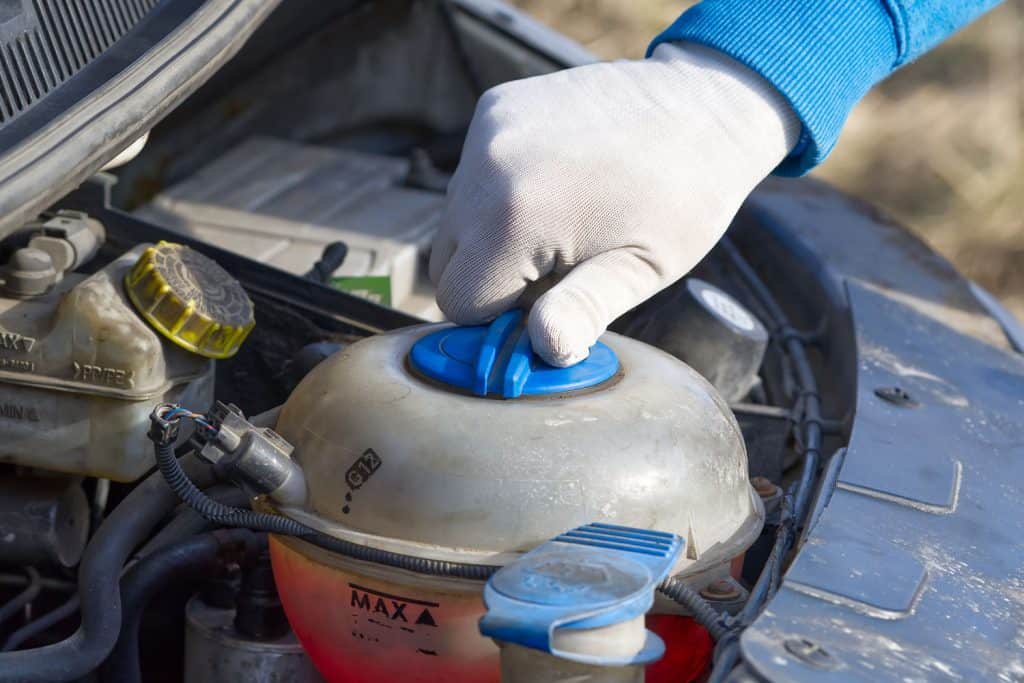
Your antifreeze tank only allows a limited amount of coolant to be poured into its reservoir. Two marks indicate how much antifreeze is in the motor, if it is cold it is at a minimum, if it is hot it is at maximum.
When too much coolant is placed overflowing can happen and may result in a puddle of antifreeze that is hazardous especially if you have any pets or children around.
Another problem that may be possible is if it comes in contact with your engine wiring. This may cause major electrical problems and can be very expensive to repair.
Usually, you are pouring coolant while the engine is either off or is cold, so you should only fill your antifreeze tank to the minimum as this is what the engine requires. The coolant will regulate its volume as the temperature fluctuates. Always look for the markings and the label in your vehicle as not to waste bought components like fluids.
In conclusion
Engine coolant increases in volume when hot and decreases when cold. Its main purpose is to prevent the engine from overheating during hot temperatures and prevent the engine from freezing during the cold.
It also acts as a lubricant to other parts of the engine helping them run smoothly while boosting the overall life expectancy of the motor. That's why proper coolant maintenance is a must.
